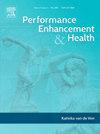奥运转型:一个叙事回顾与概念模型
IF 3.7
Q2 HOSPITALITY, LEISURE, SPORT & TOURISM
引用次数: 0
摘要
参加奥运会代表着精英运动员职业生涯的巅峰,通常伴随着一系列的情绪——包括兴奋、流动、骄傲和意义感——以及失望、沮丧、焦虑和缺乏目标等负面经历。在过去的十年里,对运动员职业生涯的研究越来越多地认识到,奥运会是一个纵向的职业过渡,包括多个阶段和元过渡,包括资格/选择、准备、参与和赛后阶段。然而,尚未有任何审查涉及到政府间组织过渡的全部范围,也没有制定出任何概念模型来解释这一复杂的经验。本文通过追求两个目标来解决这一差距:(a)对奥运会组委会的过渡进行叙述性回顾,(b)引入一个新的框架——奥运会过渡模型(OGT模型)——该模型捕捉了奥运会组委会过渡中的变化事件、职业道路和相关的适应过程。我们的研究问题是:(a)优秀运动员在整个奥运之旅中的过渡经历是什么?(b)能否确定具体的过渡和阶段作为职业道路?(c)运动员如何看待这些转变?(d)优秀运动员在情感上如何应对过渡时期的要求和障碍?(e)运动员如何适应这些要求和障碍?研究结果强调了定量、比较、预测和纵向研究在这一领域的稀缺性。该评论强调了奥组委经历的复杂和动态的情感本质及其对运动员健康的潜在影响。OGT模型为研究人员和实践者提供了一个全面的框架来理解运动员的变化事件、职业道路和适应过程。本文章由计算机程序翻译,如有差异,请以英文原文为准。
The Olympic Games transition: a narrative review and a conceptual model
Participation in the Olympic Games (OGs) represents the pinnacle of an elite athlete’s career, often accompanied by a spectrum of emotions – including euphoria, flow, pride, and a sense of meaning – as well as negative experiences such as disappointment, frustration, anxiety, and a lack of purpose. Over the past decade, research on athletic careers has increasingly recognized the OGs as a longitudinal career transition encompassing multiple phases and meta-transitions, including qualification/selection, preparation, participation, and the post-Games period. However, no review has yet addressed the full scope of the OGs transition, and no conceptual model has been developed to account for this complex experience. This article addresses this gap by pursuing two objectives: (a) to provide a narrative review of the OGs transition, and (b) to introduce a new framework – the Olympic Games Transition Model (OGT model) – which captures the change events, career pathways, and associated adaptation processes within the OGs transition. Our research questions were: (a) What are the transitional experiences of elite athletes throughout their Olympic journeys? (b) Can specific transitions and phases be identified as career pathways? (c) How do athletes perceive these transitions? (d) How do elite athletes emotionally respond to the transition’s demands and barriers? (e) How do athletes adapt to these demands and barriers? The findings underscore the scarcity of quantitative, comparative, predictive, and longitudinal research in this area. The review highlights the complex and dynamic emotional nature of the OGs experience and its potential impact on athletes’ well-being. The OGT model offers researchers and practitioners a comprehensive framework for understanding athletes’ change events, career pathways, and adaptation processes.
求助全文
通过发布文献求助,成功后即可免费获取论文全文。
去求助
来源期刊

Performance enhancement and health
Social Sciences-Health (social science)
CiteScore
4.70
自引率
0.00%
发文量
27
审稿时长
57 days
 求助内容:
求助内容: 应助结果提醒方式:
应助结果提醒方式:


